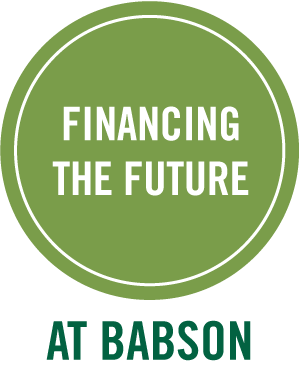How Will We Finance Our Future?
When Larry Fink, CEO of BlackRock, the world’s largest money-management firm, put the challenge to the business community to contribute to society or risk being left out of their portfolio, he struck an important nerve.
It’s a critical challenge, but the roadmap has been unclear. Most of us would agree that the traditional models of business, financing, and investing are no longer sufficient in and of themselves. CSR and ESG management practices are good, but they are not good enough to address the magnitude of solvable problems. In every sector, we need to shift our mindsets, change our models, rethink our roles, and break out of our silos.
 Financing the Future
Financing the Future
In our Financing the Future series, we explore the role of capital in driving social progress with questions like:
- How will we finance our future?
- What new financing mechanisms are being created?
- What role do large corporations, NGOs, government agencies, community foundations, family offices, philanthropists, and investors play?
- What’s working? What’s needed?
Investing in social progress and managing societal dilemmas is complex. It takes time and requires a new understanding, new forms of collaborative relationships, innovative financing schemes, and the moral and financial courage to put capital where the highest ROI is recalibrated and recalculated to accelerate economic and social progress. As Howard W. Buffett and William B. Eimicke explain in their book, Social Value Investing:
Fundamental problems of hunger, poverty, and inequality cannot be solved with short-term approaches. Meaningful progress on making the world a better place for everyone requires long-term strategies and management frameworks measured by how well we share success. Many of our biggest problems, those most worth solving, may not be solved in our lifetime—but they can be solved. It will require investment in all kinds of people to bolster their ability to succeed. It will take thoughtful, contextually appropriate processes that align organizations’ goals with local and global needs. It will mean investing time and resources in communities in ways that transform beneficiaries into shareholders of their outcomes. And it will mean putting the right measurement and performance systems in place so that we invest in opportunities that have the highest intrinsic value for society.
For the Financing the Future series, we’re starting these important conversations with two events:
October 3:
Family Offices & Social Impact
Our series kicks off with the leaders of three large family offices, representing billions of dollars combined. Steve Shaya (J&B Medical Supply), Peter Braxton (Envoi), and James Benedict (Kidd & Company) will lead a conversation around how they are leveraging capital to drive social change while achieving financial outcomes.
This conversation is hosted in collaboration with The Cutler Center for Investments and Finance and Institute for Family Entrepreneurship.
October 18:
Policy & Finance for Good
Dr. Sara Minard will lead a conversation around the changing and converging roles of policy and finance in creating social impact. Minard has spent the last two decades working at the intersections of private sector development, economic policy, social innovation and social enterprise, design thinking and impact investing/social finance.
This conversation is hosted in collaboration with The Cutler Center for Investments and Finance and Center for Women’s Entrepreneurial Leadership (CWEL).
Conversations matter. Join us.
